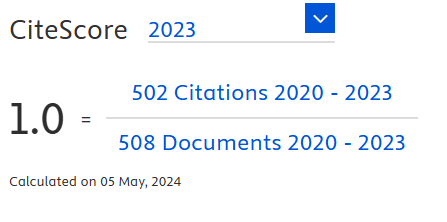2320 8694
Guidelines for Special Issues
To be considered for publication in the Journal of Experimental Biology and Agricultural Sciences, Special Issue articles must align with the journal's Focus and SCOPE and be relevant to a diverse, international readership with a multidisciplinary background. Prospective Guest Editors should send extended proposals to the EIC, CO_EIC, or Managing Editor. The JEBAS editorial team evaluates each proposal based on its scope and nature of work. Guest Editors should be aware that the quality, originality, and significance of articles in Special Issues are held to the same standards as regular articles. You can find a description of JEBAS's Focus and Scope at https://jebas.org/ojs/index.php/jebas/focus_and_scope. During the initial stage, the Editorial board member or other expert referees appointed by the EIC or CoEIC evaluate the proposal to determine whether it aligns with the journal's aims and scope. A formal schedule is created for the full draft issue's development if the proposal meets the criteria.
The detailed formal proposal must include the following information:
- The title of the Special Issue.
- A brief CV of the proposed Guest Editor (s).
- A summary of the Special Issue must have an Aim, SCOPE, significance, and Keywords (no more than one page).
- Titles and draft abstracts of each proposed article (no more than 250 words) and any available draft papers. Ideally, at least 20-25 submitted articles should be submitted to allow for possible rejections.
- A brief statement of double-blind peer review (How it aligns with JEBAS's peer review policy, mentioned at https://jebas.org/ojs/index.php/jebas/peer_reviewer_process).
- A draft of the Call for Papers (optional).
- Brief details of contributors.
- An outline timetable.
The proposal for a special issue will be accepted if the topic is relevant to international researchers and reflects an awareness of international perspectives and the relevant field's development. The EIC, JEBAS, will appoint an Editor/Subject Matter Proficient Editor to sponsor the Special Issue. Guest Editors are responsible for overseeing the peer review process. They can also assign manuscript (s) to other suitable reviewer (s) for assistance in making a final recommendation to the journal. However, the sponsoring Editor/SMP editor of the journal shall make a final decision about acceptance/approval for given manuscript. The same editorial and acceptance process will be followed in case of conference proceedings also where the "Organizing Committee" shall make final recommendations in place of "Guest Editor" to the sponsoring Editor/SMP editor, who shall take final decision about acceptance of a manuscript. In cases where a Call for Papers is issued, the Managing Editor will work with the Guest Editors to finalize and release the Call for Papers as widely as possible.
The review process and editorial procedure
Guest Editors need to communicate clearly to authors that an invitation to submit a paper does not guarantee its publication. Authors should send their papers directly to the Guest Editor via email or through the JEBAS website, following the arrangements made by the managing editor upon request. Once the article is received, each article is sent for double blind peer review by the appointed reviewers, following the same process as regular issue submissions. The reviewers may recommend acceptance, modification, or rejection of the articles according to the criteria specified in the Author Guideline and Policies. Guest Editors are responsible for making a final recommendation to the journal. However, the sponsoring Editor/SMP editor of the journal shall make a final decision about acceptance/approval for given manuscript. The same editorial and acceptance process will be followed in case of conference proceedings also where the "Organizing Committee" shall make final recommendations to the sponsoring Editor/SMP editor, who shall take final decision about acceptance of a manuscript. Guest Editors may reject papers that do not meet the criteria required for the Special Issue without external peer review. Special issues will only be published if at least ten individual papers are accepted. If the special issue is rejected as a whole, the accepted papers can be published as individual articles in regular issues but will be labelled as belonging to the particular special issue.
For all Special Issue types, please note that:
- The Guest Editor(s) are responsible for evaluating all papers submitted for a Special Issue. They have the authority to reject papers without review if they deem them to be of poor quality lacking originality or significance. Alternatively, they may request further revisions before the papers are reviewed.
- The double-blind peer review of each paper must be done in the usual manner through the journal's online submission system or by email. After receiving the reviews, the Guest Editor will make a provisional decision on each paper and communicate it to the assigned Editor or SMP Editor for confirmation. If the assigned Editor or SMP Editor disagrees with the Guest Editor's acceptance decision, an appeal may be made by the Guest Editor, but the final decision remains with the Editor or SMP Editor.
- It is worth noting that during the review process, the assigned Editor or SMP Editor has the authority to reject individual papers or the entire Special Issue if they do not meet the required quality standards.
- Accepted articles will be published and available for citation on the JEBAS website as " Accepted articles" until the full Special Issue is accepted and complete. Authors will be sent proofs to review during this time.
- In case of any disagreements that arise during the editorial process, the Editors-in-Chief will act as the final arbiter.
General information
Here are some important guidelines to keep in mind for a successful submission to the JEBAS Special Issue:
Number
An entire Special Issue should have approximately 15-20 articles.
Timetable
Authors should adhere to the deadlines set by the Guest Editors. If deadlines are missed for submission, revisions, or proof returns, the papers may not be included in the Special Issue.
Publication Ethics and Policies
All Guest Editors and Authors who submit to JEBAS must follow JEBAS' publication Ethics and Policies. In addition, we adhere to the guidelines set by the Committee on Publication Ethics (COPE).
Content Relevance
The Guest Editor(s) must ensure that all selected articles for the Special Issue are aligned with the journal's scope.
Formatting
Guest Editor(s) must ensure that all selected articles follow JEBAS formatting guidelines, particularly in reference to citations. JEBAS follows the APA citation pattern. Authors should consult the Journal's Author Guidelines for this.
Checklist
When finalizing the Special Issue, Guest Editor(s) should provide the JEBAS production/managing Editors with details on the sequence of the papers, the name and sequence of the Guest Editor(s), the final title of the Special Issue, and preface.
Published and Upcoming Special Issue
- International Conference on Plant Science - Click here
International Conference on Agriculture Engineering.– Click Here
Global Congress on Sustainable Growth and Development 2021- Health and Life Sciences (GCSGD2021-HLS) – Published
Natural Resource Management for Climate Smart Sustainable Agriculture – Published- International Conference on Pharmaceutical Material, Engineering and Applied Science (ICOPMES-2020) – Published








